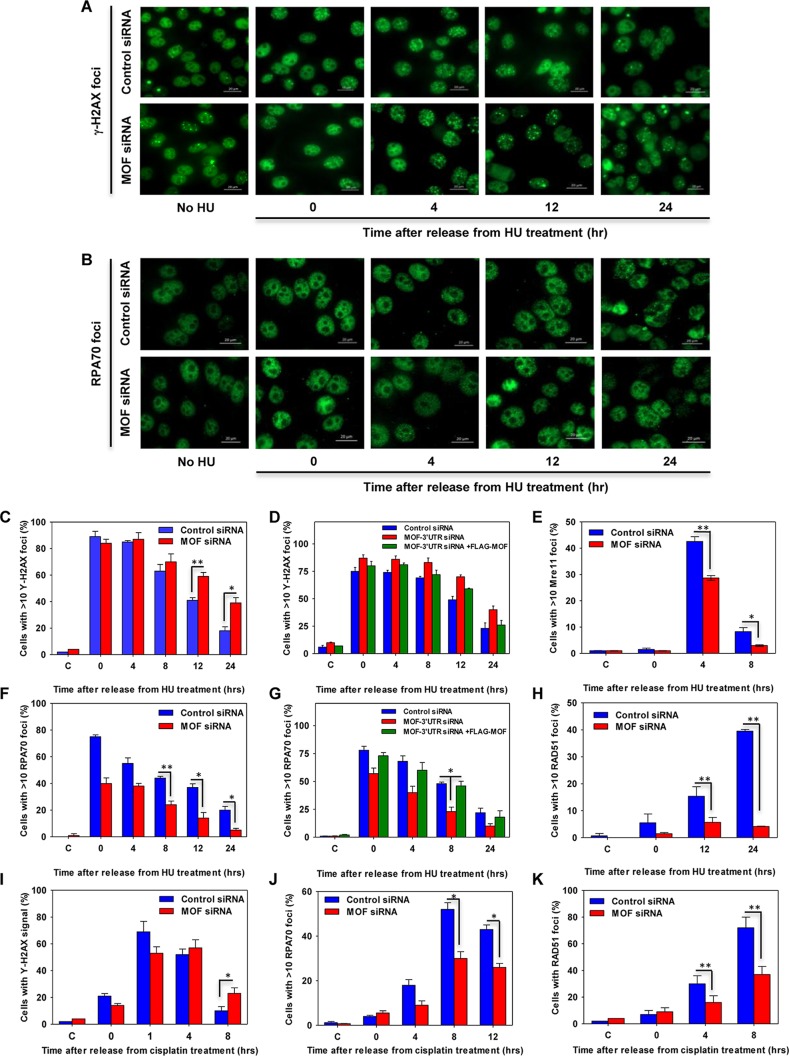FIG 5.
Homologous-recombination-mediated DNA repair is impaired in MOF-depleted cells. (A) Representative images of γ-H2AX focus formation at different time points after the release from HU treatment in control and MOF-depleted cells. (B) Representative images of RPA70 focus formation in control and MOF-depleted cells after HU treatment and release for different time points. (C to K) The control and MOF-depleted HeLa cells were treated with either 2 mM HU for 24 h or 50 μM cisplatin for 1 h and analyzed for focus formation of different HR proteins at various time intervals after the release from stress. (C, E, F, and H) Quantification of time-dependent γH2AX, Mre11, RPA70, and Rad51 focus formation, respectively, in control and MOF-depleted cells after treatment with HU. The experiments were performed two times for each protein, and for every time point approximately 150 cells were counted. P values: *, <0.05; **, <0.01. (D and G) Quantification of time-dependent γH2AX (D) and RPA70 (G) focus formation after HU treatment and release for different time points in control cells and cells transfected with 3′ UTR-specific MOF siRNA and depletion followed by ectopic FLAG-MOF expression. (I to K) Quantification of time-dependent γH2AX, RPA70, and Rad51 focus formation, respectively, in control and MOF-depleted cells after cisplatin treatment and release for different time points.

